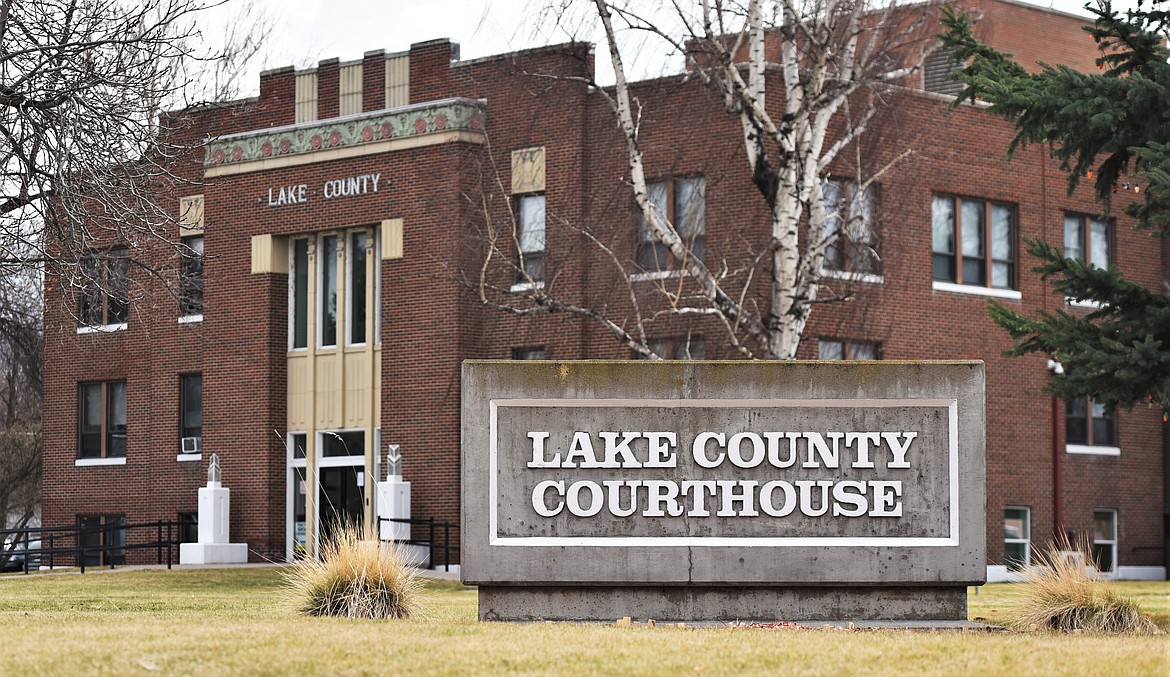Lake County passes resolution to withdraw from Public Law 280
Lake County Commissioners passed a resolution Tuesday to withdraw from Public Law 280, a nearly 60-year-old agreement with the state over criminal jurisdiction on the Flathead Reservation.
The county has objected to funding law enforcement without more support from the state, which it said is Montana’s obligation under Public Law 280. Lake County said rising costs for law enforcement and diversion of officers is driving the decision.
The commission unanimously approved the resolution, making the effective date May 26, 2023, a few weeks after the 68th Legislature is scheduled to complete its work.
This delay was done with the intention of giving the legislature and the Gov. Greg Gianforte a “chance to step up to the plate and do what they said they would do the last legislative session,” said Commissioner Steve Stanley.
Gianforte would have six months upon receiving the resolution to issue a proclamation relieving Lake County of enforcement of jurisdiction on the reservation.
Legislation passed during the 2021 session would have had the state reimburse the county for assuming criminal jurisdiction. It originally allocated $2.2 million for Lake County to support law enforcement, but the state only appropriated $1 in the budget in the final bill.
The county filed a complaint against the state over the issue of jurisdiction during the summer.
In the filing, the county said it pays more than $4 million per year to comply with Public Law 280 and the Confederated Salish and Kootenai Tribes spend around the same amount to facilitate misdemeanor jurisdiction.
The CSKT have overseen misdemeanor offenses since 1994 and are signatories to the agreement.
Commissioner Gale Decker said Tuesday the governor has shown no interest in meeting with commissioners to discuss or possibly resolve the issue.
“His lack of leadership has been astounding, as he has been unwilling to engage in any talks that might resolve this controversy,” said Decker. “In reply to our lawsuit, his position is ‘If the county doesn’t like the agreement, then get out of it.’ The safety and well being of the 25,000 residents living under Public Law 280 in the county is not a concern of his.”
Commissioners announced their intention to withdraw from the agreement last month.
Brooke Stroyke, a spokeswoman for Gianforte, said the office recognizes the right of Lake County to withdraw from Public Law 280. She highlighted the fact that funding would come from the legislature.
Lt. Gov. Kristen Juras and Misty Kuhl, director of the Governor’s Office of Indian Affairs, met with county commissioners in May of last year to discuss the issue. In June, the governor’s office told the commissioners they remained interested in and would continue efforts towards a solution.
Congress passed Public Law 280 in 1953, which allowed for the transfer of criminal jurisdiction to go from federal to state hands where reservations are located. A decade later, Montana authorized overseeing jurisdiction on the Flathead Indian Reservation under Public Law 280, and it remains the only reservation in the state where it is implemented.
Draft legislation has already been submitted by Sen. Greg Hertz, R-Polson, for the upcoming 2023 session that would require the state and county to agree to a reimbursement amount for the cost of criminal jurisdiction or the state would be required to take over.
Rep. Joe Read,R-Ronan, has also submitted a bill draft request on appropriating funds for Public Law 280 in the House.
CSKT Tribal Council Chairman Tom McDonald said that there are concerns over how jurisdiction would be implemented if the state were to take over enforcement of Public Law 280.
“Those are still yet-to-be troubleshot to the extent that we would look at it,” McDonald told the Daily Montanan on Tuesday.
McDonald said he hadn’t been involved in any conversations around the proposed legislation as of yet, but the issue isn’t so much with law enforcement, as it is with funding.
Commissioner Bill Barron said that he saw the strain of Public Law 280 on law enforcement during his tenure as Sheriff in 1999 and that it’s only grown since. He said that about half of Public Law 280 incarcerations are from other tribes, not CSKT.
Decker said the issue was critical for the commission.
“This vote is the most important vote I will take in my 10 years as a county commissioner. Long-term implications of withdrawal will not be evident for some time,” Decker said. “The commissioners are exhausting all possible remedies as to the sharing of Public Law 280 costs.”


